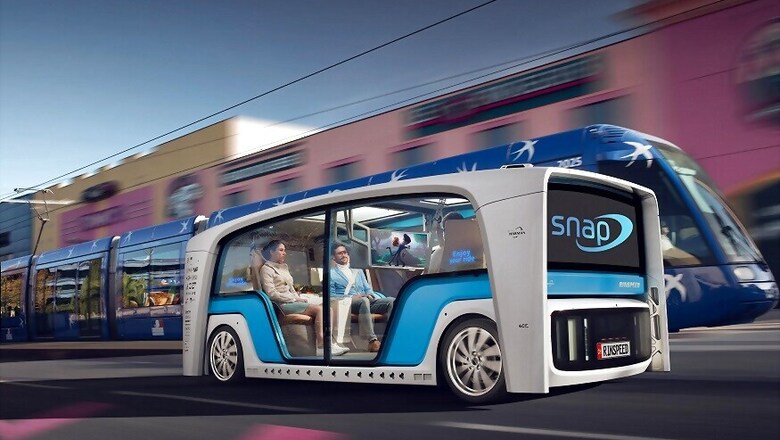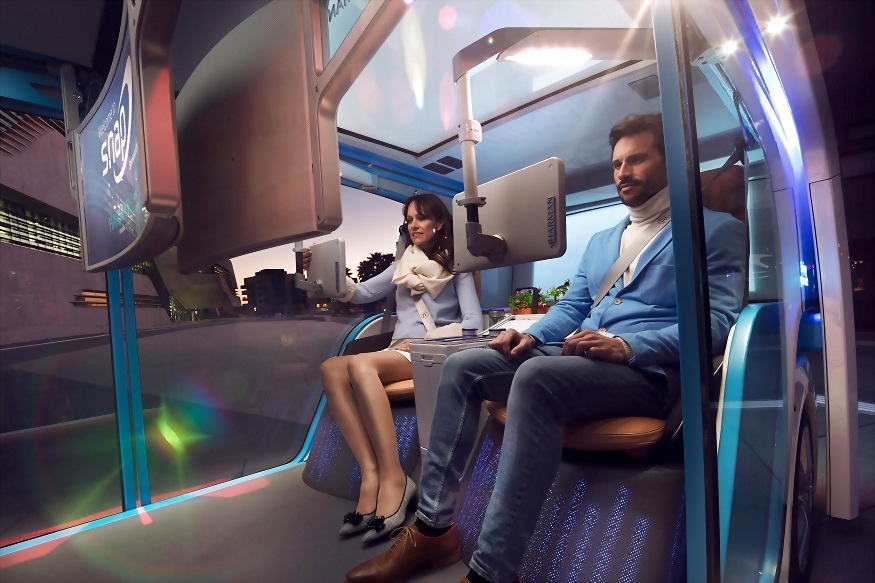
views
Rinspeed is seen as a sometimes-eccentric Swiss vehicle design company, but with its latest concept car, the Snap, it may have hit upon the solution to two of the biggest issues set to face the automotive industry in the coming years.
Chindōgu is the Japanese art of inventing items that seem like ingenious solutions on first glance, but that on closer inspection are useless and comical. In recent years, Rinspeed has become the anti- Chindōgu. Since selling off its successful Porsche tuning and modification business to focus purely on design, the Swiss company, headed by Frank M. Rinderknecht, has produced concept after concept (24 and counting) that at first seem completely detached from reality, yet on closer inspection are ingenious.
And with the Snap, which Rinderknecht has officially revealed ahead of its in-the-flesh CES debut, Rinspeed and its partners could well have solved two of the biggest problems the automotive industry faces as it attempts to move from simply manufacturing vehicles to providing mobility services: technological redundancy and environmental impact.
Rinspeed likens the Snap to a motorized skateboard carrying interchangeable passenger pods. Different pods can be built to meet different needs -- transporting a family, conducting a meeting, parcel delivery, mobile catering -- the list is potentially endless.
But regardless of the pod, all of the Snap's moving parts, plus all of the cameras, sensors and other systems needed for fully autonomous driving are contained in the rolling chassis or skateboard.

Thanks to the unstoppable march of technology that already enables a host of premium cars to navigate a highway without human input and that will soon be able to handle inner-city situations unaided, cars are becoming very much like smartphones -- they're going to be technologically out of date within two to three years.
However, the Snap's design means that as the next wave of technology comes, just the skateboard part of the vehicle will need replacing or updating. The pods remain untouched.
This, in turn, will help reduce environmental impact. At the end of November, eight of the world's largest car companies joined an initiative to reduce their environmental footprint and take more responsibility for how materials are sourced and recycled through the supply chain. If companies have a chassis that they can recondition, refresh and recycle rather than starting from scratch again every time technology improves, it could drastically reduce car-making's environmental impact.
As for the idea of interchangeable pods or being able to make a vehicle a useful space even when stationary, one of the standout concepts at this year's LA Auto Show is the Chris Bangle-designed REDS. It's a compact space that can be adapted to suit different needs -- be it a place for meditation and baby changing, conducting a quick business meeting, or catching a movie -- that also happens to be a compact electric car. And as far-fetched as that idea sounds, it's already at the prototype stage and is expected to hit the road, initially in China before the end of the decade.
Also Watch: Dubai Airshow 2017 and Travelogue | Feature | Cars18



















Comments
0 comment